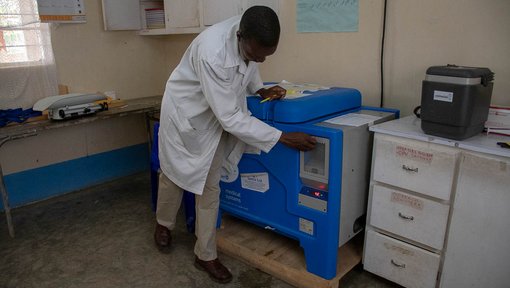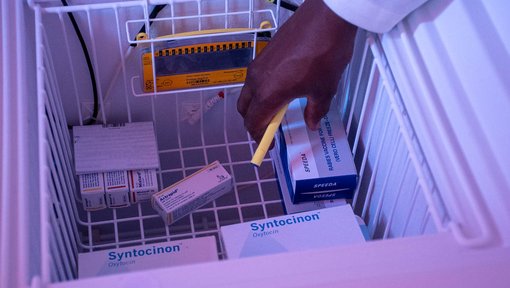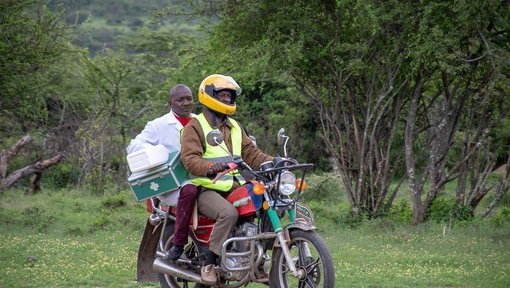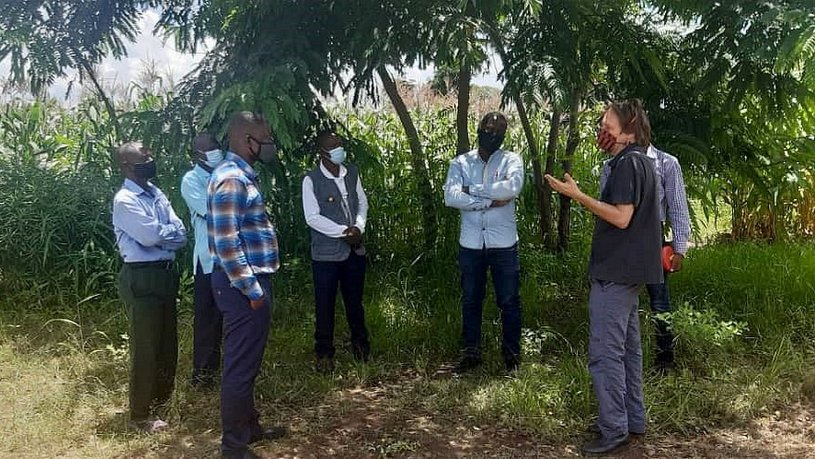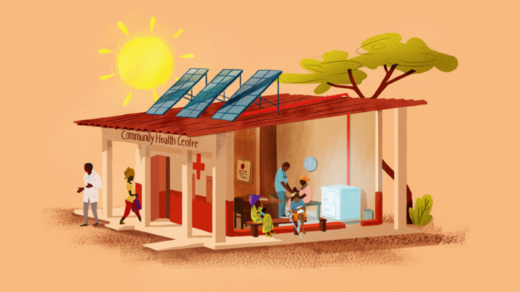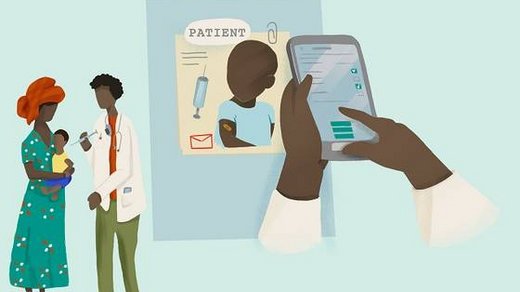The GIZ project builds a vaccination shelter for a health centre in Malawi and procures environmentally friendly cooling equipment to strengthen the efforts of local health workers
Immunization is one of the most successful and cost-effective health interventions worldwide, saving two to three million lives annually. However, 20 million children worldwide are still unvaccinated and therefore at risk of dying from vaccine-preventable diseases. Children living in remote and underserved regions, where vaccination coverage rates are still very low, and where children are often weakened by malnutrition, are particularly affected. Additionally, interrupted cold chains lead to the risk of vaccination with harmful vaccines, inefficient use of vaccines and of financial wastage of resources and personnel.
Construction of a vaccination shelter and procurement of climate-friendly cooling equipment
The project 'emmunize' wants to change that. With the support of the Merck Family Foundation (abre en una nueva ventana), the immunization infrastructure at the Bilira Health Center in Ntcheu district, Malawi will be strenghtened. A climate-friendly solar-powered fridge is being procured, health workers get equipped with tablets, cooling boxes as well as temperature sensors and a shelter will be constructed for the vaccination of children under 5 years of age. The completion of the shelter is scheduled for the beginning of August 2021.
"The construction of the under-five shelter will create a more conducive environment for the mothers and their children," adds Dr Paul Dielemans, Deputy Team Leader at the "Malawi German Health Programme" (MGHP) of GIZ. "It will therefore attract more clients to receive this very important service and it will be easier to enforce COVID-19 preventive measures such as hand washing and social distancing. The cooling equipment will ensure that vaccines are kept at the right temperature and safe to administer."
"The ideal cold chain is solar-powered and uses innovative IT solutions to reach every corner of rural Africa."
GIZ Presence in Malawi
The equipment is intended to strengthen the health staff in their efforts to independently conduct routine vaccination clinics, both static and outreach, and vaccination campaigns in the long term. In addition, the health staff and district engineers will be taught how to install, maintain and troubleshoot the solar refrigerator as well as how to check important aspects of the cold chain. A sustainable existence of the project can therefore be ensured.
GIZ has been active in Malawi for over 30 years and is represented through its GIZ health and country office in Malawi to ensure supervision of the existing project. Therefore, there is a good knowledge of the local structures as well as a good network. "The focus of the GIZ health programme in Malawi is on health systems strengthening with a particular emphasis on quality of service delivery in Sexual and Reproductive Health", explains Dr Paul Dielemans. "The emmunize project contributes by improving the access and quality of vaccinations for pregnant women and their children."

